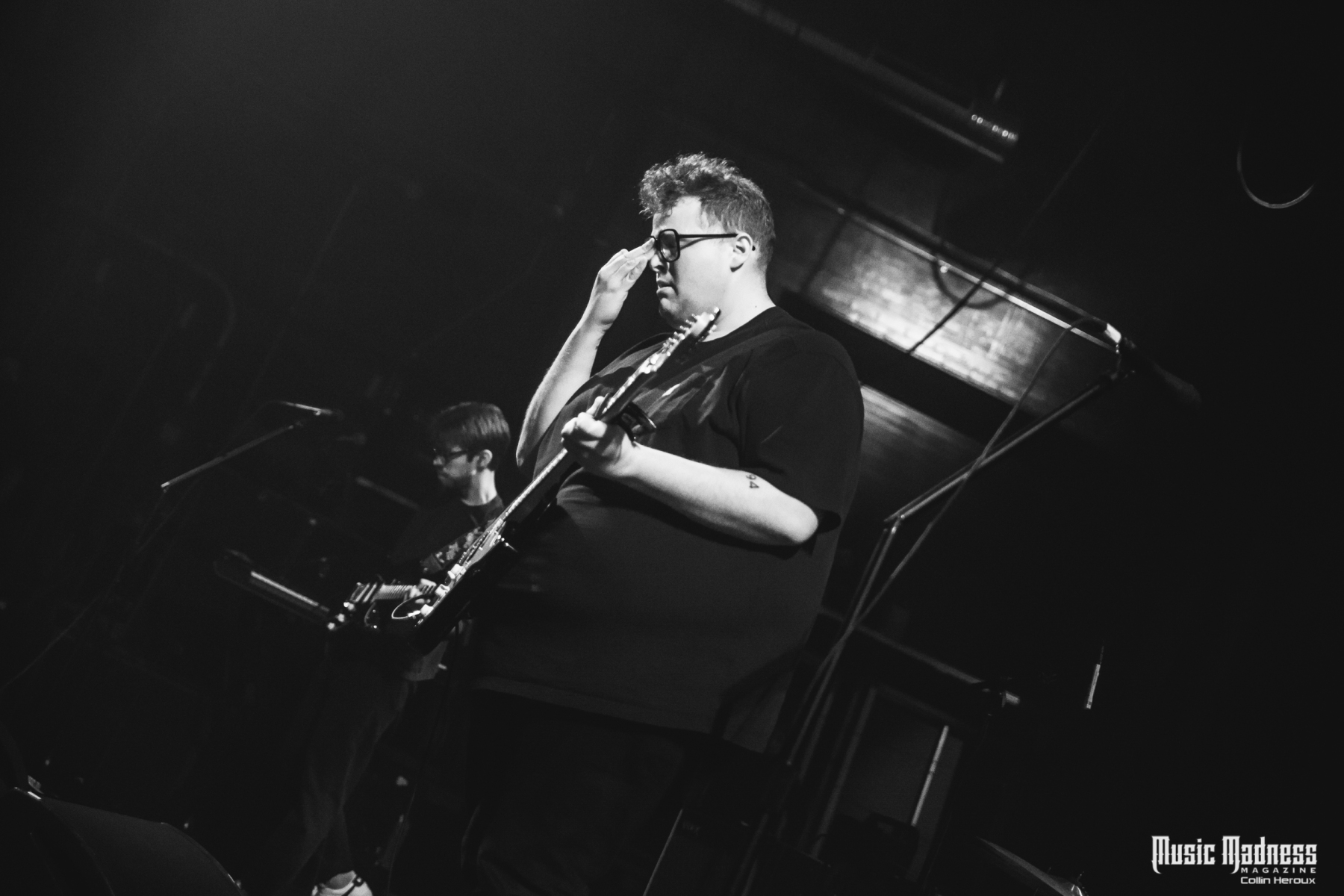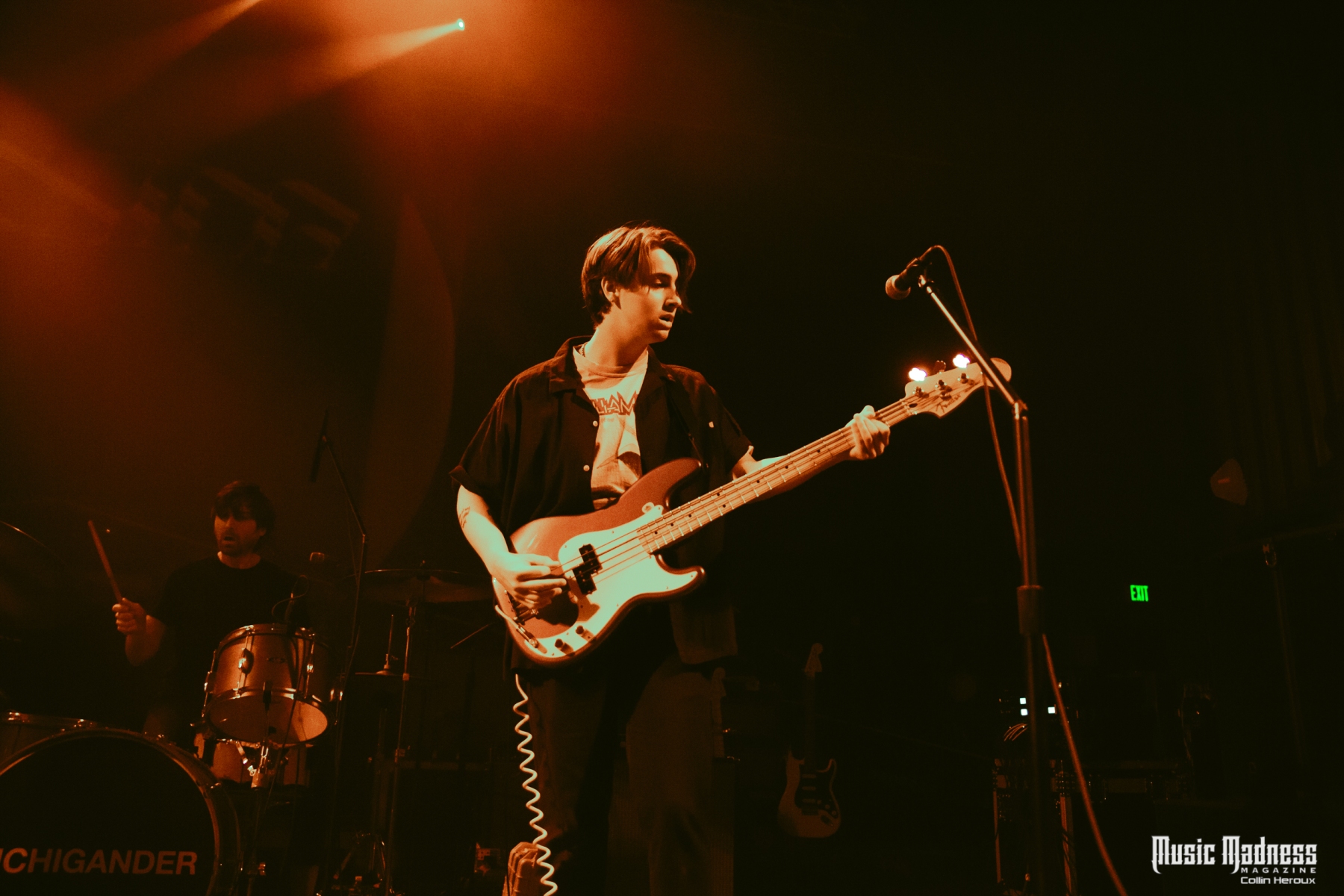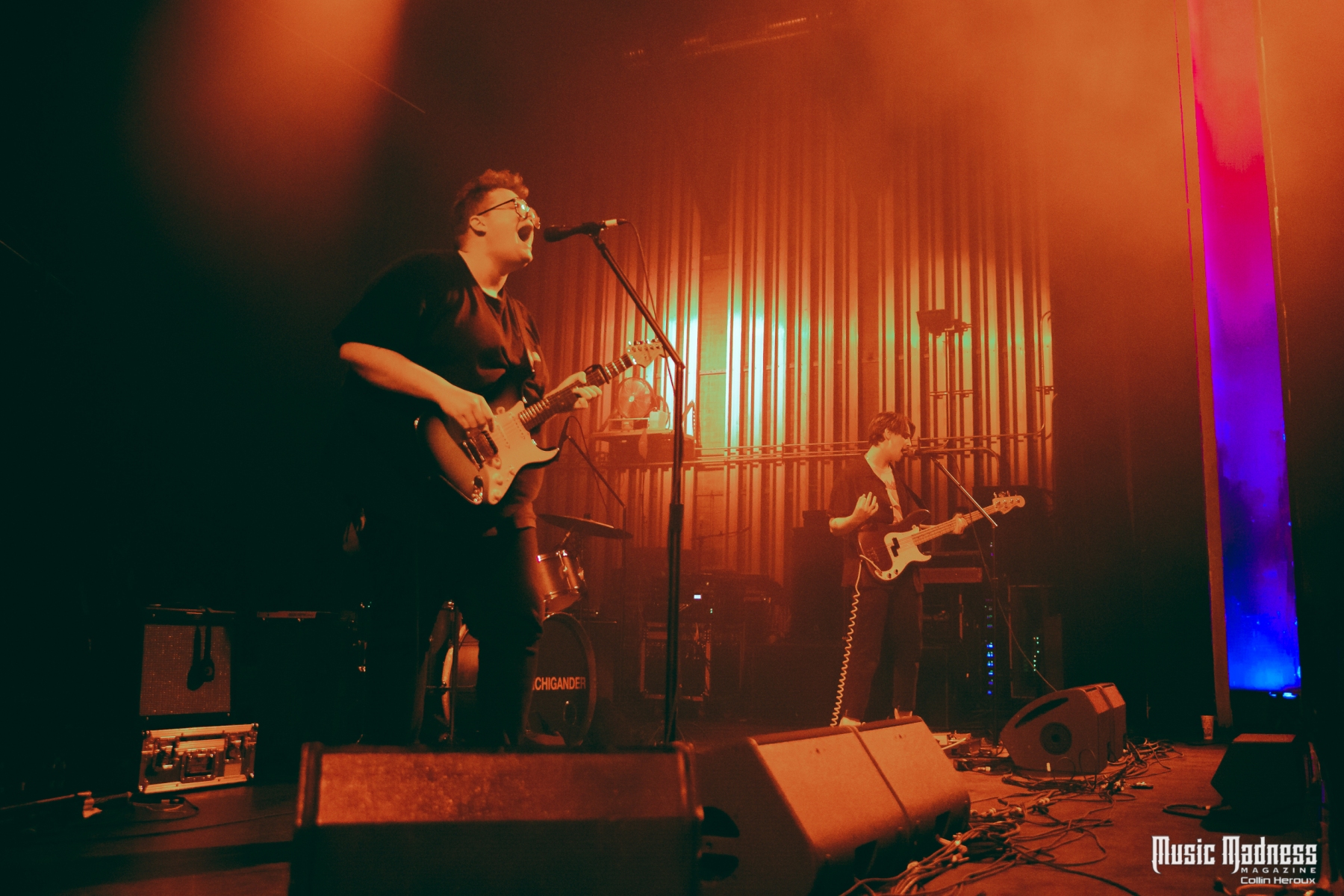
It’s always encouraging to see bands forming friendships that stand the test of time. One of the final tours that took place in full before the Covid pandemic was the incredible duo of Manchester Orchestra and Foxing, who along with Oso Oso trekked across the States with one of the most stacked lineups in recent memory, celebrating the 10th anniversary of MO’s 2009 record Mean Everything to Nothing. The co-headlining duo are at it again, and the conclusion of their tour with Jason Singer and his Michigander project finds them at New Haven’s College St. Music Hall.
Despite being the youngest act on the tour, Michigander plays with a sound, and Singer commands the stage with a demeanor, that gives one the sense they’ve been doing this their whole lives. Foxing, as ever, put on a fantastic set to ramp the night up before Manchester Orchestra takes the stage. Frontman Conor Murphy is always animated, but he’s feeling in rare form on this final night of the tour. They’ve been showcasing their new record, Drawn Down the Moon, which opens, as does their set, with the song ‘737’. Beginning tender and plaintive, Murphy singing delicately over some softly-plucked acoustic notes, the song explodes into a soundscape that mimics one of the titular planes spiraling downward through the sky; Murphy’s voice is one of the most guttural screams he’s ever employed, flying downwards through ten lines that negate the titles of each song on the album. He bounces all over with seemingly-unlimited energy, kneeling at the edge of the stage, and at one point even throws himself to the floor at the conclusion of ‘Grand Paradise’ from their prior record, Nearer My God.
As hyped as Murphy is to be performing, he’s equally ecstatic about the opportunity to watch Manchester Orchestra play one more time before it’s over. Before the band’s final song, he talks up the headliners, showering them with superlatives. He turns to the crowd: “You should be losing your minds! You should be pissing your pants!” he cries about the set to come, and without even being mid-song hurls himself supine on the ground once more to emphasize his excitement.
A bit after nine, Manchester Orchestra takes the stage, a five-piece led by singer and guitarist Andy Hull. Like Murphy, Hull is feeling the bittersweet taste of the end of the tour, and on the subject, he says, “You’re about to watch a bunch of grown men cry on stage,” with a little laugh after. He reminisces about the first time they played in Connecticut, in a venue that sticks in his mind only because it had “a lot of bullet holes in it.” The band begins their night with a wealth of material from their latest record, entitled The Million Masks of God. The divine has always had a notable presence in the band’s music, understandably so since feeling ostracized at his religious high school was the inciting incident that saw Hull turn to songwriting in the first place. Heavy subjects of all stripes have long underpinned the band’s music even from the young age at which Hull began, and Million Masks is no different, especially as fellow founding member Robert McDowell lost his father during the making of the record.
One of Hull’s greatest strengths as a songwriter that’s on full display throughout the evening is his ability to balance tenderness with intensity, to begin with, or segue into a minimalist passage in a song before growing it to a huge swell that seems to beg for an even bigger space than the sizable music hall they find themselves in. While the “Orchestra” in the band’s name began predominately as an in-joke about Hull inviting his friends to play with the nascent band, their sound as they’ve grown has come to make the moniker something of a self-fulfilling prophecy. The Million Masks of God takes that trend even further; ‘Bed Head’, the fourth song of the evening, is a prime example, beginning with a glitchy grinding sound but developing into something beautiful and operatic as it traces a rift in a relationship and Hull pleads for clarity.
The crowd sings “It’s the end of the world” to signal the upswing in ‘I Can Barely Breathe’, one of the oldest songs the band plays throughout the night. They bridge the tail end of the feverish ‘I Can Feel a Hot One’ into the title track of Cope, and soon enough the band arrives at one of their most well-known cuts, ‘Virgin’. If you were skulking around any sort of music forum 10 or so years ago, the way people did before algorithms, the recommendation of Manchester Orchestra would invariably come, usually with this song attached to it. A little sample of someone talking about “manic-depressive, masochistic, disco existentialists” shepherds the listener into a lone guitar riff and a vocal from Hull that for all its initial restraint absolutely drips with venom and ire. The choruses are huge, sung alternately by a children’s and adult chorus, a seeming nod to the irreversible loss of innocence and passage of time in the lyrics, which chart another failing relationship.
While he’s about to start playing ‘The Alien’ from A Black Mile to the Surface, Hull responds on a whim to a call from the crowd to play ‘Shake It Out’. “You caught me on a sensitive evening,” he muses, and the band changes gears. The song endures as one of their strongest pieces of work and, much like ‘Virgin’, many years ago demonstrated the band’s mastery of dynamics, sandwiching a calm midsection between two thrashing rushes. But the quiet is no less intense, and in that limbo Hull envisions God peeling off his skin and seeing the mess inside him, apologetic, seeming to fear being weighed and found wanting. Played live so many years later, this song has grown bigger, the hits that stalk his screams of the title carrying ten times the weight that they did on that original recording.
Near the end of the main set, most of the band departs, leaving Hull and McDowell there. Hull grabs an acoustic guitar and together with delicate harmony, they play ‘Telepath’, the calm center of Million Masks. It’s an earnest, folk-influenced ballad about commitment, and its touching core makes it a perfect candidate to cap a portion of the evening, a statement of somewhere that Hull has arrived after many years chronicled in tumultuous passage after passage. And while the album is hardly this tranquil all over, the sheer gorgeous simplicity of the song highlights Hull’s maturation as a writer and a human being. As the band recoups offstage, a tiny ragdoll angel ascends into a spotlight and hovers at the apex of its luminous cone – though when Hull returns he chuckles and remarks that the stall was not intentional, and the angel subsequently completes her journey into the rafters.
The encore closes on an equally emotional note – ‘The Silence’ recounts Hull talking to God about his daughter and ultimately experiencing a kind of ego death. “There is nothing you keep, there is only reflection,” goes a repeated line throughout the song, and he comes to the wide-eyed realization that fatherhood demands a kind of selflessness that nothing else does. “You are cursed by my ancestry, there is nothing but darkness and agony,” he imparts, perhaps reflecting on all the tribulation he’s cataloged over the years, in his music as much as anything else. But even in that admission, he vows to hold her above all of it, the sentiment that closes both the evening and the album the song hails from. Hull’s writing has long benefited from his talent for introspection, pioneered by his faith, and it’s that sharpness, the willingness to peel back his own layers of self, that anchors the thrilling, huge sound of the band’s music and captivates people no matter what their own beliefs may entail.
Review and Photos by Collin Heroux



































